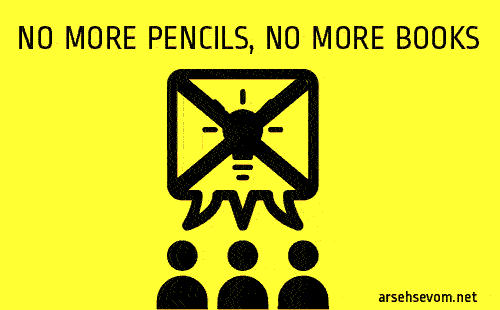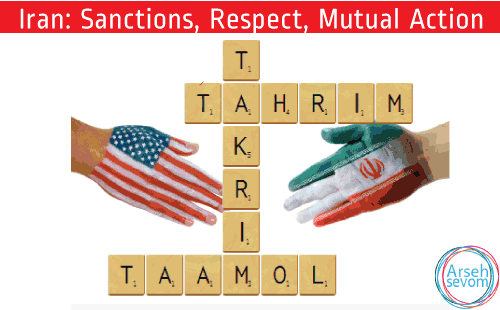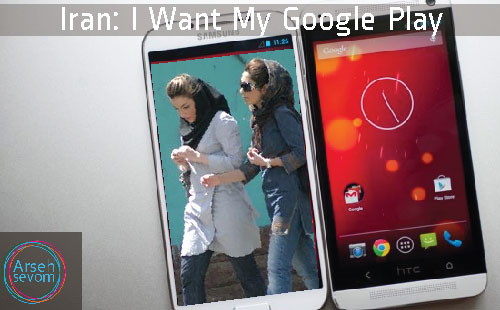
Persistent Punishments and an Erosion of Civil Rights
October 17, 2011
Threat of War, Press TV Attacks, Parliamentary Elections, Amnesty Reports
March 6, 2012Dear Readers:
The primary goal of Arseh Sevom is to promote a vibrant civil society in Iran and related communities. All activities we take on are in service to this. Vibrant societies make room for voices from the margins as well as the center.
The name Arseh Sevom is Persian for third sphere and refers to the sphere of activities represented by civil society. The organization was formed to address the needs of civil society actors. In the wake of the flawed 2009 presidential elections in Iran, many civil society actors have found themselves facing severe pressure. This includes limitations on travel, new sanctions against associations, harassment and arrests, and unfounded charges against organizations and individuals. Revolutionary courts and the notion of national security are used to circumvent the rule of law. In 2010, we released the report, Attack on Civil Society in Iran, documenting many of the abuses.
Civil society actors amplify the voices of people at the margins. They highlight difficult, even unpopular issues, curb the excesses of power, and inspire passion. In order to make their work possible, Arseh Sevom reports on abuses against the third sphere, provides information and undertakes exchanges, and develops materials that can be used to build the capacity of individuals and groups.
As I write this letter, the situation of civil society actors in Iran is even more desperate than in 2010. The 2011 report of the UN Special Rapporteur on Human Rights in Iran shows a dire situation for activists that includes:
Exorbitant bails: Often individuals face bail amounts so high that they or their families are forced to hand over the deeds to their houses. These deeds often remain in the hands of the authorities even after defendants are acquitted or released. This means that families and individuals no longer have control over their financial assets.
Persistent punishments: The effect of these exorbitant bails and the retention of deeds is a muzzling of civil society actors. In addition, some have faced life-long bans on their activities even after release.
Lack of due process: Reports show that prosecutors are aware of sentences before a defendant even appears in court for sentencing. There are multiple claims of the denial of due process and fair trials for both prisoners of conscience and criminal defendants.
High number of executions: There has been an increase in executions in Iran. The punishment is often applied for non-capital crimes. According to officials in Iran, more than 200 executions have taken place in 2011.
Muzzling activists and critics: The charges brought against critics of the regime include: “(a) acting against national security; (b) participating in an illegal gathering; (c) insulting the Supreme Leader; and (d) spreading propaganda against the regime.” Critics have found themselves imprisoned, harassed, and denied their rights.
Religious intolerance: The Special Rapporteur expresses concern specifically over the case of the Protestant minister, Yousef Nadarkhani, who has been sentenced to death unless he renounces his faith.”This is an emblematic case of religious intolerance and State-sanctioned violations of the right to freedom of religion and belief, a fundamental freedom guaranteed by international instruments.”
Denial of health care: In many cases, prisoners and activists are denied access to healthcare. In the case of the cleric Mehdi Karroubi, a leader of the political opposition who is under house arrest, authorities have prevented him from keeping medical appointments and have denied access to medication.
In this, our first ever annual report, we look back on 2010, share our accomplishments and even some of our struggles. This first report covers four months of operations.
Our objective as an organization is to use our annual reports as learning documents. This means we strive for transparency, while making a case for Arseh Sevom. This is a difficult path. Annual reports are meant to show the world how wonderful we are. By sharing our struggles as well as our successes, we demonstrate our trust in our stakeholders to help us do everything possible to become successful in our mission to promote a vibrant civil society in Iran and related communities. Arseh Sevom is a learning organization that seeks out and shares knowledge from people and organizations all over the world. We welcome your participation.
Sincerely,
Bert Taken
President of the Board
Amsterdam, December 2011
Download the full report (pdf)
If you have a question, contact Kamran Ashtary at [email protected].





